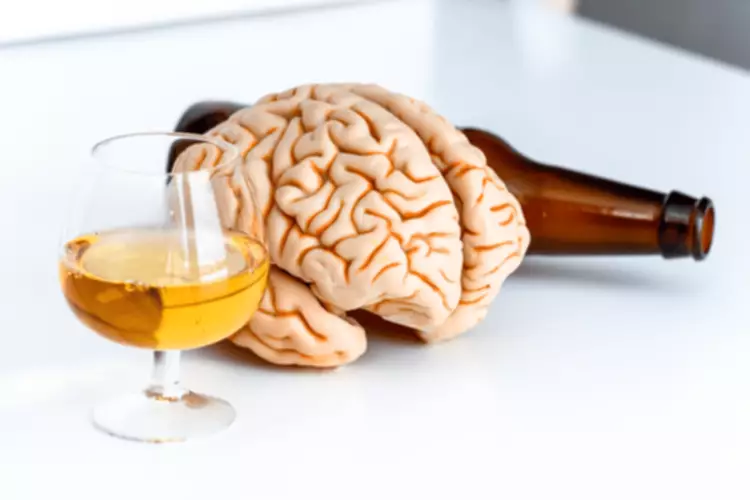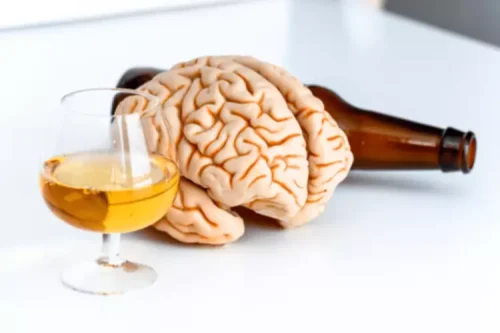
There is no research to show a direct link between kidney pain and alcohol. People who are dehydrated are at an increased risk of developing kidney stones. Drinking too much fluid with kidney disease can cause a build-up of fluid and other severe health conditions. Some kidney disease patients may be required to limit their fluid intake and thus need to factor in the alcohol they consume into their daily fluid allowance. In many patients with liver cirrhosis, the kidneys’ ability to create dilute urine is compromised, leading to a state of abnormally low sodium concentration (i.e., hyponatremia). In hyponatremic patients, the amount of fluid retained by the kidneys is disproportionately greater than the amount of sodium retained.
Meditation’s Impact on ADHD: How It Can Help & Tips

Understanding the risks and benefits of beer consumption helps you make informed choices that support your kidney health. While it might increase urination, that doesn’t equate to a cleansing effect. Let’s explore the relationship between beer and kidney function further. The effects of your immune system attacking your kidneys can damage them and eventually lead to CKD or kidney failure. Lupus is an autoimmune disease where your immune system attacks healthy tissue. Each of these kidney disorders have their own treatment plans depending on the severity and impacts on the body and other organs.
Alcohol Metabolism and Kidney Stress

Each kidney contains about a million tiny filtering units called nephrons, which help to clean the blood. Blood enters the kidneys through the renal artery and exits through the renal vein. The nephrons filter out fluid and waste products from the blood, and this filtered fluid then flows through a tube called the ureter into the bladder. The waste products are concentrated in the extra fluid, which becomes urine.

Can Kidneys Recover From Alcohol-Related Damage?
Weight gain, in turn, elevates the risk of developing conditions such as hypertension and diabetes, both of which does the kidney filter alcohol impact kidney health. For example, individuals with kidney stones or bladder stones may need to drink more water to prevent or treat these conditions. Additionally, regular bowel movements are important for bladder health, and certain foods, such as lean proteins, whole grains, and fiber-rich breads, can promote bowel health. Maintaining a healthy lifestyle, including regular physical activity, limited alcohol intake, reduced caffeine consumption, and abstaining from smoking, can also contribute to bladder health. Short-term alcohol consumption can lead to dehydration, as it acts as a diuretic, increasing urine production. This can strain the kidneys, forcing them to work harder to maintain fluid balance.
- The impact of cannabis on liver health and CLD is gaining attention, making it an attractive area of future research.
- In contrast, the “overflow” theory postulates that ascites follows when the kidneys retain sodium in response to signals sent by a dysfunctional liver to expand plasma volume.
- Additionally, alcohol lowers magnesium and citrate levels—both of which help prevent stone formation.
- Proper fluid intake aids in the elimination of waste products and the maintenance of electrolyte balance.
- Managing blood pressure levels is vital in helping manage and prevent kidney disease progression.
This can be due to either inherited conditions like polycystic kidney disease or shared environmental or social factors. The National Kidney Foundation notes that while sugar doesn’t damage the kidneys, too much sugar intake in people with diabetes can lead to high blood sugar that can damage the kidneys. If you are currently living with health issues related to alcohol consumption or would like to stop drinking alcohol to help minimize or prevent any health issues, Dove Recovery is here for you.
In some cases, vast amounts of abdominal fluid may collect, occasionally more than 7 gallons (Epstein 1996). Most of the metabolic reactions essential to life are highly sensitive to the acidity (i.e., hydrogen ion concentration) of the surrounding fluid. The kidneys play an important role in regulating acidity, thereby helping determine the rate at which metabolic reactions proceed. Alcohol can hamper the regulation of acidity, thus affecting the body’s metabolic balance.

Alcohol acts as a diuretic, increasing urine production and leading to fluid loss. This dehydration can strain the kidneys as they work Halfway house harder to maintain fluid balance in the body. The urinary tract, which includes the kidneys, bladder, ureter, and urethra, works as a drainage system to expel waste from the body in the form of urine. The kidneys play a crucial role in this process by filtering the blood and removing toxins, resulting in the production of urine. This waste filtration process is essential for maintaining a healthy body.